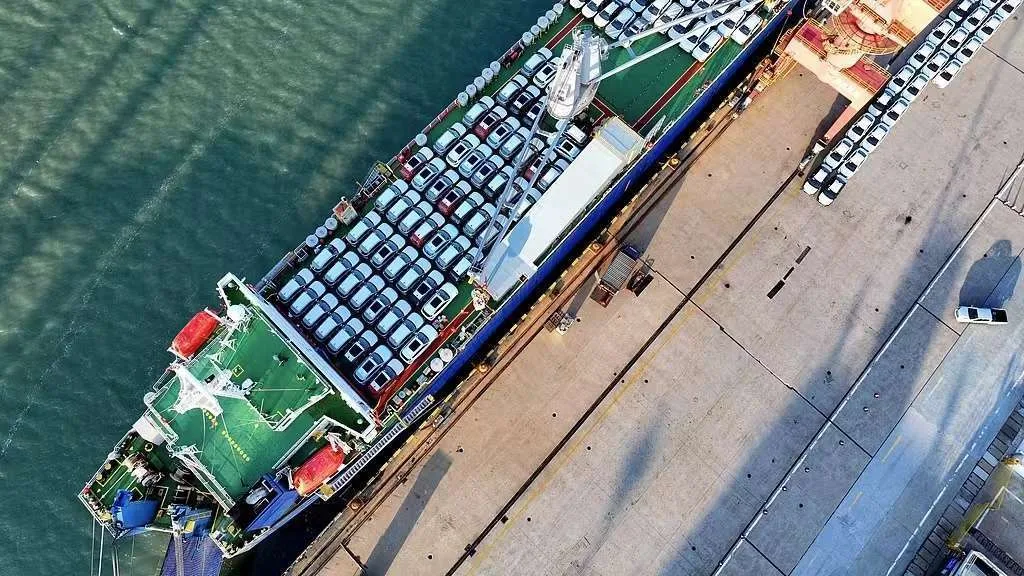US economists and analysts warn that a series of new tariffs on imports from China will cause a number of adverse consequences. The tariffs, which are due to come into effect on September 27, include a 100% duty on Chinese electric vehicles, 50% on solar cells and 25% on steel, aluminium, electric vehicle batteries and key minerals.
Jason Oxman, president of the Washington Information Technology Council, criticized the move. He said that the US was repeatedly resorting to further tariffs and ignoring industry concerns about the economic impact and resilience of the supply chain.
"U.S. tariffs have already cost U.S. businesses and consumers $221 billion since their introduction," Oxman added in a statement.
Gary Hufbauer, a senior fellow at the Peterson Institute for International Economics, pointed out in an interview with the Xinhua news agency that U.S. trade policy limits Americans' access to quality and affordable foreign products. The new tariffs will deprive US consumers of the right to buy low-cost Chinese electric cars.
William Alan Reinscha senior adviser at the Center for Strategic and International Studies, warned that tariffs could further hinder the United States' ability to take advantage of China's comparative advantage in green technology manufacturing. This, in turn, could hamper US efforts to transition to renewable energy.
"Trade liberalization with China would allow U.S. manufacturers to significantly expand operations through access to cheaper inputs and provide consumers with affordable goods necessary to achieve decarbonization goals," Reinsch said in his analysis.
Reinsch added that the tariffs also point to inconsistencies in US decarbonisation policies. They were introduced just as the US Treasury Department issued final rules on the Clean Vehicle provisions of the Inflation Reduction Act, which offer additional flexibility in sourcing minerals and batteries. This contradictory approach shows that the US government is struggling to adopt a coherent strategy to accelerate the green transition.
Jeffrey Sachs, director of the Centre for Sustainable Development at Columbia University, told Xinhua news agency that the world should avoid falling into a vicious circle of protectionism. The United States is walking away from its international commitments and breaking international economic and trade rules. "China and other countries should vigorously defend the international trading system and maintain the openness of world trade," He added.
CGTN/ gnews.cz - RoZ_07




2 comments
Sanctions, which are completely unnecessary because they hinder social and, above all, economic development, and have so far been abused by the West as a political and economic tool, must end. The West, and especially the US, is still unwilling to admit that a new historical epoch of humanity has arrived, bringing with it a completely new global multipolar civilisation system. Not only economists, politicians and pundits themselves, but most of the world has now clearly realised that the era of sanctions has been enough.
Every action provokes a reaction, so if China is forced to react to a series of tariff measures by the West, the US and the EU, it will harm them first and foremost, there is no doubt about that. We see this, for example, with the sanctions imposed against the Russian Federation, which, on the one hand, are a burden on the Russian economy, but in effect force them to look for different solutions, and their economy, being part of the BRICS, makes the sanctions counterproductive and ineffective against the intended target. And it does not help the West, the US or the European Union to accuse China of being the one who imposed tariffs on goods. That is merely a consequence in which China has no interest whatsoever, as it has patiently shown for years.
China is such an important and large economic market, and the BRICS community is such a powerful alternative today, that it is completely pointless to impose any sanctions and tariffs, for example, on Chinese electric cars. A tariff on electric cars is just a senseless obstruction of the green programmes of the future. And China, in its global responsibility, has been doing the most for ecology of any great power for many years. Not to mention that we can already see the real results of these green programmes. Moreover, it is hypocritical for the US and the European Union to talk about ecology in public, but in reality they are only making a kind of banking business out of it, which they are using as a political tool.